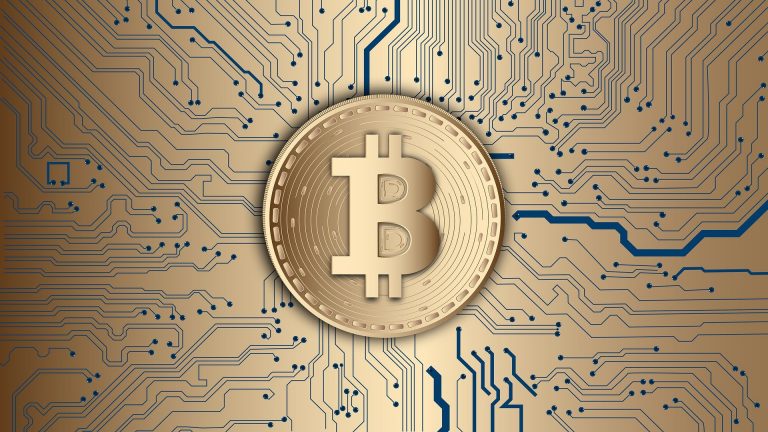On February 21 the spot price to buy a bitcoin — the first and most common digital currency of the world — soared briefly above $58,000. (For reference, the all-time low of the cryptocurrency has been as high as $67.81 since 2013.) With such a meteoric increase, a lot of people wonder: exactly what is Bitcoin and where is it worth? For years, are we going to worry about the Bitcoin bubble and the Gold Rush periods? Or, is the investment to become a core factor and a traditional way to buy Pizza in a diversified investment portfolio?
The jury is still out for the most part. However, over the past ten years, Bitcoin’s position in retail investor and major institution portfolios has provided us a deeper understanding. If you would like to explore more about Bitcoin and how to get start work with it check out Dchained.
Contents
What is Bitcoin?
Bitcoin was released in 2009 and is the first crypto-currency to be considered. It’s a decentralized digital cash form that avoids the need to render financial transfers with conventional intermediaries including banks and governments. A bit lost, still feeling? Don’t worry, it’s natural. Don’t worry.
The government that issues it is backed and supervised by fiat money (e.g. US dollars on your bank account). Bitcoin, on the other part, is powered by a synthesis of peer-to-peer technology, the science of transmitting secret information that can only be read by the sender and the recipient. The network of people, including Wikipedia’s volunteer editors — is a science of passing secret information. This produces a currency that is funded by code rather than tangible value objects, such as gold or silver, or confidence in central authorities, such as the US dollar or Japanese yen.
Satoshi Nakamoto, the username of the enigmatic Bitcoin founder who remains anonymous — in the white paper presenting open-source technology, writes “The need for an electronic payment system based on cryptographical evidence is required instead of confidence, which allows two willing parties to transact directly with each other without the need for a trusted third party. Since then, AT&T, Dallas Mavericks, and Wikipedia have acknowledged it as payment among others. It has been a long way.
How do Bitcoins Work?
The computer file that is saved on the computer or smartphone in the digital wallet (each bitcoin is a trading symbol ‘BTC,’ while ‘XBT’ is also used). In order to explain how it works, the following words and a brief context are understandable:
Blockchain: The open-source code called blockchain-powered Bitcoin, creates a common public repository. Each transaction is a “compressed” block, which generates a permanent record for any transaction. Blockchain infrastructure is the core with more than 6,000 Bitcoin coins.
Private and public keys: A public key and a private key are provided in a Bitcoin wallet, which functions together to allow the user to execute and digitally sign transactions with proven consent.
Bitcoin Miners: Miners or peer-to-peer network members — then automatically check the transactions on high-speed computers in 10 to 20 minutes. Miners will be paid for their job in Bitcoin.
How does Bitcoin make money?
Bitcoin valuation is compatible with the laws of supply and demand – and, when demand waxes and declines, cryptocurrency market instability is large.
In addition to the bitcoin mining business, which needs technological knowledge and extremely productive computing investments, most people buy bitcoins as currency speculation—wanting that one bitcoin’s US dollar worth would be stronger today than in the future. This is hard to forecast, though.
What are some Pros and Cons of Bitcoins?
Pros of Bitcoin
1. Private, safe purchases, with less possible charges, at any time: Once you have bitcoins you can move them anywhere, anytime, and anywhere, reducing any transaction’s time and future costs. Transactions should not provide identifying details such as names or credit card numbers to avoid the risk of consumers being robbed of illegal transactions or identity theft. (But bear in mind that you would normally first have to connect your bank account in order to buy Bitcoins on an exchange.)
2. The potential for big growth: Some investors who buy and hold the currency are betting that once Bitcoin matures, greater trust and more widespread use will follow, and therefore Bitcoin’s value will grow.
3. The ability to avoid traditional banks or government intermediaries: After the financial crisis and the Great Recession, some investors are eager to embrace an alternative, decentralized currency — one that is essentially outside the control of regular banks, governing authorities or other third parties. (However, to buy Bitcoin on an exchange with U.S. dollars, you’ll likely need to link your bank account.)
Cons of Bitcoin
1. Volatility in values (Pricing): The 2017 surge in the price of Bitcoin was pushed onto the Bitcoin business by speculators, as NerdWallet workers authored at the period. Recent gains are excellent news if you acquired Bitcoin in December 2018; if you purchased Bitcoin’s 2017 price speeding to $20,000, then the debts have to be recovered by December 2020.
2. Concerns over hacking: Although supporters say that behind bitcoin blockchain technology is much safe than conventional electronic money transactions, bitcoin warm wallets became tempting targets for hackers. Some high-profile hackers, for example, the news in May 2019, were hacked from several high-net-worth accounts for CRIPs exchange finance by over $40 million in Bitcoin (the company covered the losses).
3. Usage limited (but increasing): AT&T giant joined Overstock.com, Microsoft, and Dish Network in Mai 2019 to commit to Bitcoin transfers. But the exception, not the law, is such businesses.
4. Not under SIPC security: The SIC insures customers up to $500,000 whether the brokerage collapsed or funds are robbed but cryptocurrency is not included.

